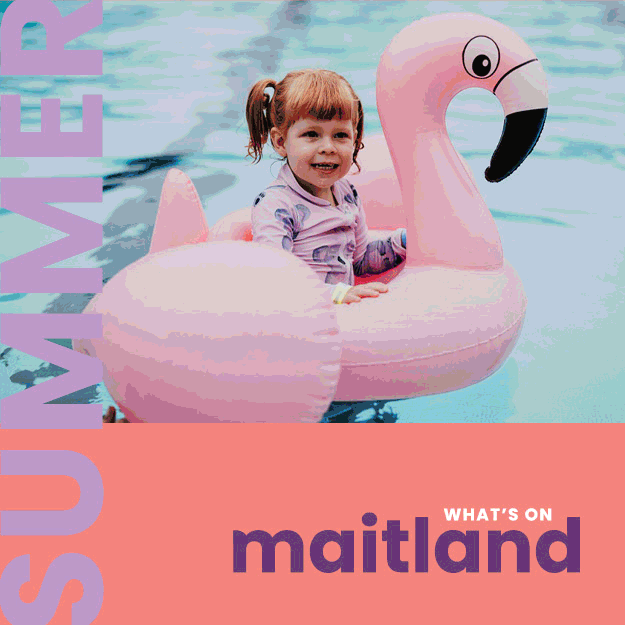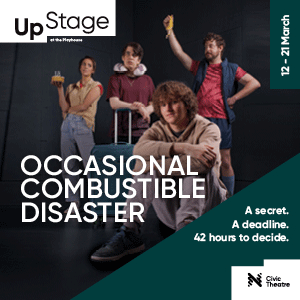Sarah Williams | Empowering Young People to Foster Change
- Liane Morris
- Jun 1, 2023
- 5 min read

Sarah Williams, aged just 22 years, is on a mission to change Australia through advocacy, awareness and education about sexual violence. A proud Awabakal woman, a born and bred Novocastrian and the 2023 Newcastle Woman of the Year, Sarah also heads up the not-for-profit organisation, What Were You Wearing? Australia (WWYW) and has just become the youngest person ever to have a petition debated in parliament.
Sarah has been working closely with Tim Crakanthorp MP on a petition to parliament calling for mandatory drink spiking and sexual violence training for security and bar staff in all licenced venues in New South Wales. The petition, which needed 20,000 signatures by 25 May to be debated by the legislative assembly, is seen as critical to making nightlife safer after a massive increase in the incidence of spiking and chronic underreporting of the activity. The petition successfully achieved 20,000 signatures and will now be debated in parliament this month.
"Sarah's drive and compassion are inspiring, so it's a privilege to be able to work with her, raise awareness and support WWYW's initiatives," said Tim Crakanthorp MP.
"I get goosebumps every time I hear her speak, and she's already showing the hallmarks of being a real changemaker in our community".
Her journey as a survivor advocate begins with her history of child sexual abuse, family and domestic violence and adult sexual assault. Her experiences made her angry and passionate about doing something to make change. Currently a Bachelor of Law and Communications student at the University of Newcastle, Sarah volunteers over 50 hours a week to WWYW and is a founding member of Full Stop Australia, Survivor Advocates Advisory Group, established in partnership with the University of Newcastle.
It all began in 2021 when Sarah contacted the creators of What Were You Wearing? in the United States, keen to establish an exhibition as part of her university studies. The exhibition in the US began in 2014 and showcased the clothing of anonymous sexual assault victims to challenge the concept that provocative clothing contributes to the reasons behind the attacks and to highlight the prevalence of victim blaming. She was given the go-ahead to run with it and was mentored by the University Gender Research Network to set up the exhibition as part of the 16 Days of Activism (a campaign against gender-based violence). She began by collecting the stories of survivors, and by June, they'd gone viral. At the time of the exhibition opening on 25 November 2021, she had collected 9,500 stories from the Hunter. Today she has over 26,200 and 82,000 followers on TikTok, where she has created a safe space of support and community.
"The response to the exhibition and the stories I collected was overwhelming," said Sarah.
"It became apparent by the sheer numbers that more needed to be done. That's how the not-for-profit organisation began. We kicked off in 2022 with 20 team members. That number has now grown to 55."

That same year, Sarah was awarded the New South Wales Volunteer of the Year award. She's also been the recipient of the Youth of the Year from the Newcastle Business Club, NSW Volunteer of the Year by Youth Action and Student Entrepreneur of the Year by the University of Newcastle.
WWYW organises marches and protests to draw attention to sexual violence, provides information and support to victim survivors, helps them with victim services applications and psychology appointments, and provides Survivor Packs. The packs are given to victims soon after the assault containing self-care items, a journal and pen, a teddy bear and helpful information. They are delivered free to homes and hospitals.
"We still collect stories too. In fact, 14,000 of them reference music festivals which led to the creation of our Safe Spaces. We attend music festivals, university campuses and events to create safe, chill-out zones where people can go to escape the frantic pace or if they are being harassed. Many of the policies and procedures at these events are not traumainformed. "Our staff also monitor the crowds to make sure people are ok, ensure that the correct procedures are adhered to in police strip searches, which should be female to female and that the security staff are following correct protocols."
Shockingly, there are no sexual violence/assault support groups in Newcastle. There are plenty of domestic violence support groups but no ongoing sexual violence groups. This month, WWYW is kicking off the first, with a psychologist, to create a safe space for survivors to heal.
Sarah's high profile and recognition are a double-edged sword. She is keen to use her voice for good and to showcase, as a victim-survivor herself, that good things can still happen in your life. However, she feels like she must always be strong and has to be a beacon of hope for other survivors, yet she is still struggling with the consequences of her own assaults and the legal system.
"Even though I have spearheaded the organisation, injustices still happen for people like me. It's just as bad. I wouldn't be here without WWYW. I was suicidal when I started the exhibition. My councillor told me I needed to stay alive until the exhibition opened to help survivors. After I saw the impact the work had, there was no way that I could take that way out. So many people needed my help.
"I have a talented team, but it's not all sunshine and rainbows. Every week I volunteer 50 to 60 hours. I donated two of my university scholarships to fund the exhibition and quit my last job so I could do my volunteer work. It impacts my university study, and it's a heavy degree. I give it my all now, hoping it will pay me in the future. The goal is for the organisation to be able to pay its employees.
"The government should be funding us. We received a grant of $20,000 from Tim to fund the festival Safe Spaces for six months. It's a good start. We are on the ground making real change. The statistics back us up. $100,000 would really make a difference.
"Domestic violence is being recognised, and awareness is growing along with policy and funding. Sexual violence, however, is swept under the rug, and without funding and donations, our services won't survive. We can't volunteer forever."
Empowering young people and minority groups to show they can make a change is at the heart of everything Sarah does.
"Enough is enough. Young people can make a change. Step up and take action, even in small ways. Volunteer. Share a post or talk to people. Be part of the healing journey. Meeting other survivors helps you understand that what happened to you is not your fault. It gives you a whole new community. Make your own family. You don't have to give up on yourself.
Sarah has big plans for WWYW, with a vision to take it Australia-wide.
"I want to establish a community centre in every major city in Australia. An all-in-one centre where survivors can access information and support in law, psychology and medicine. A safe space. At the moment, it can take up to a year just to access all the support you need, and we can help with that burden. Newcastle will be the first in the next five years.
"There are other petitions, other campaigns to run, more improvements to make in the system, more injustices to fight. You know, the Brittany Higgins case was devastating. The media destroyed her, and the legal system is designed to protect the perpetrators while the victims are traumatised. Victim-blaming must stop, and WWYW aims to take that on and more."












































